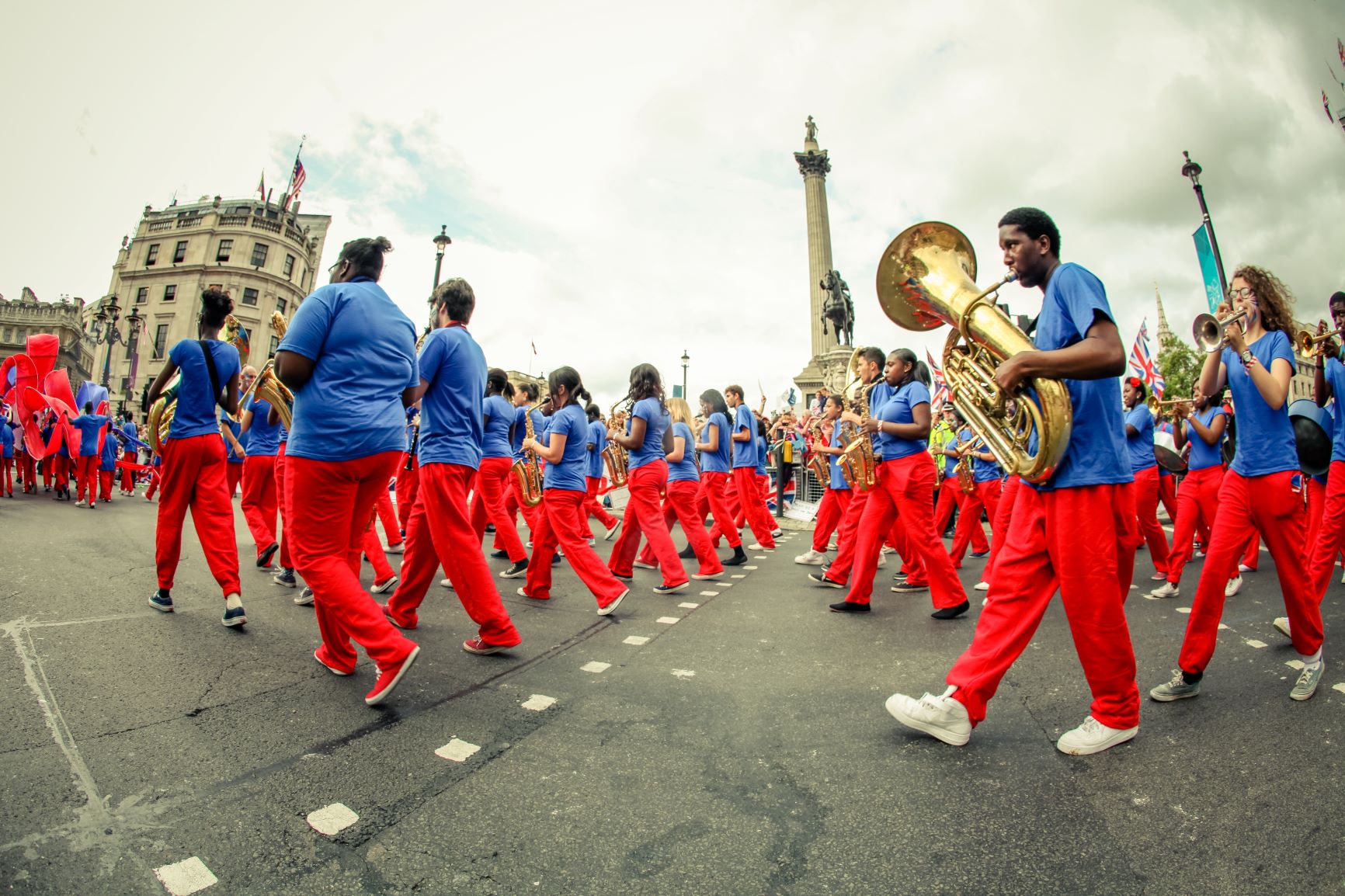Brass Bands England’s Equality, Diversity & Inclusion Roundtable
On 23 July 2020 Brass Bands England (BBE) invited guests from organisations including Pride Brass, the Bandspeople’s Alliance to Negate Discrimination (B.A.N.D.), the Kinetika Bloco performance group, Leicester’s Drum and Brass, and individuals from a diverse cross-section of those less well-represented in banding to meet at a virtual roundtable. Experiences, anecdotes and personal stories of diversity and inclusion, both positive and negative within brass banding were shared. A survey inviting a wider sharing of views was opened after the event. This is a summary of the main points that were raised. A copy of the full report can be found at bbe.org.uk
“Everything is better if you are inclusive - the music is better, the culture is better, the turn-out is better, the performances are better. If you have an inclusive environment where everyone is welcome, feels valued and important then you will get a stronger, healthier more exciting band”. Tamzyn French - Kinetika Bloco (as pictured above)
- There is a general lack of understanding about equality, diversity and inclusion within banding. Education and awareness training is needed, alongside EDI policies
- EDI activities should not be carried out as a tick-box exercise and those from minority groups should not be included for the sake of meeting EDI requirements
- Banding should reach out to other organisations who are well ahead in this field to see how they have approached the issue of diversity and inclusion and learn from them
- Bands need to be reflective of the communities in which they are based and be proactive in encouraging inclusion
- Anyone should be able to progress to any level within banding based on their merit alone
- Role models from diverse groups are needed within banding and for audiences to see in order to attract the involvement of a more diverse group of people
- Banter and low-level jokes targeted at minority groups should not be tolerated, with or without their presence. Others should speak out.
- There should be safe reporting routes along with stricter repercussions for unacceptable behaviour
- Organisations and events need to accommodate those with mental and physical disabilities
- Engagement should be made with youth to seek their views on the way forward
- Banding should be more open-minded, and broaden its music and activities to make it more fun, enjoyable and appealing to a wider cross-section of people to attract them to join
- The EDI momentum created by organisations such as B.A.N.D. needs to be continued and built upon
The question that has to be asked to individual bands: “Do you want to be diverse and inclusive? And then if you do, why do you want to be diverse and inclusive? There has to be a legitimate reason for wanting to be diverse, if it's just done to tick a box or look good it will never work.
Conclusion
Whilst there is no demographic data regarding the current make-up of bands, it is plain to see that members of bands, conductors, adjudicators, composers and those representing other banding organisations do not reflect the diversity of the society in which we live. As bands find it increasingly difficult to recruit members, they will need to draw new members from all corners of society, not only in order to survive, but to share the enjoyment and fulfilment that can be experienced through being involved with brass banding.
Hear more about the EDI group and Roundtable from the BBE Show on Brass Bands Radio (19 August 2020)
